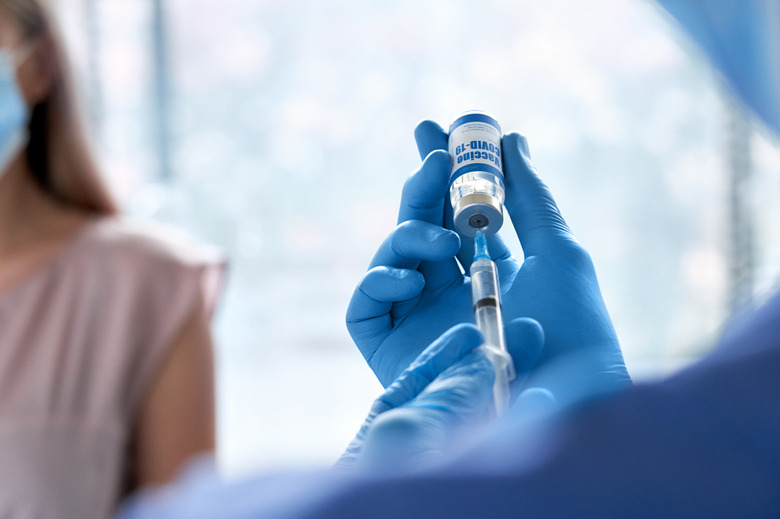What Does It Mean If You Don't Feel Any Coronavirus Vaccine Side Effects?
Over the past few weeks, health experts have assured the public that experiencing side effects from the coronavirus vaccine is no reason to worry and is actually an indication that the vaccine is working as intended.
"Things like fever or soreness at the injection site are normal, and actually they indicate that your body is reacting to the vaccine, which is what you want," immunologist Ellen F. Foxman told The Washington Post a few weeks ago. "That's a good thing."
The explanation above, however, shouldn't be taken to mean that the vaccine isn't working in instances when a vaccinated individual experiences no side effects. Put simply, if you don't experience any side effects from the COVID-19 vaccine, you should consider yourself lucky.
Commenting on this very issue, Dr. Wendell Hoffman of Sanford Health explains: "If you get this vaccine and you don't experience any side effects, it doesn't mean that it's not initiating a strong immune response."
Indeed, a slight majority of people who were part of Pfizer and Moderna's clinical trials didn't experience any severe side effects after their second dose, which is to say that there's no reason to worry about the vaccine's efficacy should you find yourself in the same position. The reality is that people respond differently to the COVID-19 vaccine and there's no singular response from the body that one can categorize as normal.
Should you experience side effects from the COVID vaccine, the most common symptoms include fatigue, fever, muscle aches, chills, headache, and nausea. More often than not, these symptoms tend to go away after 24 hours. Per the CDC, you should contact a health professional if any of the listed symptoms above persist for a few days post-injection.
Some of the more common vaccine symptoms on the arm include pain, redness, and swelling around the point of injection.
If you're planning on getting vaccinated soon, the CDC also cautions people to avoid taking pain medications like Advil in advance, with the thought being that they could potentially lower the effectiveness of the vaccine.
Meanwhile, the vaccination effort in the US is moving along at a promising clip. To date, nearly 63 million Americans have received at least one coronavirus vaccine dose, and close to 33 million Americans have "completed a vaccination regimen," according to data from Bloomberg's vaccine tracker.
At the same time, some states have started expanding vaccine eligibility in the wake of increased supply from Pfizer, Moderna, and Johnson & Johnson. Texas, for example, recently said that it's opening up vaccine eligibility to all individuals over the age of 50 starting on March 15. And Alaska this week became the first state in the country to open up vaccine eligibility for all individuals over the age of 16.
"If Alaskans had any questions about vaccine eligibility and criteria, I hope today's announcement clears it up for you," state health department commissioner Adam Crum said, "Simply put, you are eligible to get the vaccine."
New York and Minnesota are two other states that recently expanded their vaccine eligibility rules.
